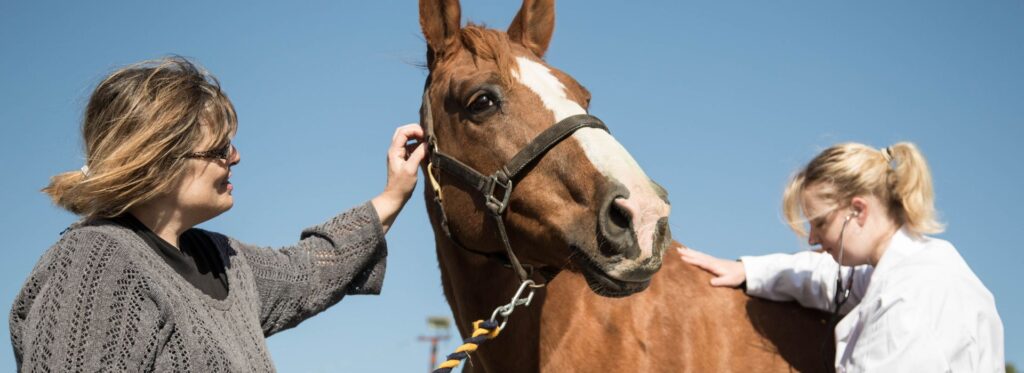Buying a horse is exciting. But let’s be honest—it’s also a big investment. And just like you’d protect a car or a home, some folks wonder… should I insure my horse?
It’s a fair question. Insurance for a horse isn’t something most new owners think about until—well—something goes wrong. But when you start looking at what horses cost, it makes you pause.
So let’s break it down, plain and simple. Here’s what horse insurance is, what it costs, what it actually covers—and whether or not it’s a smart move for you.
What Insurance Do You Need for Horses?
There are several types of horse insurance, but not everyone needs them all. Here are the most common ones:
- Mortality Insurance: This is like life insurance for your horse. If the horse dies due to accident, illness, or injury, the policy pays out the value of the horse.
- Major Medical Insurance: Helps pay for big vet bills like surgeries or treatments for colic, lameness, or other major health issues.
- Loss of Use: If your performance horse gets injured and can’t compete or do its job anymore, this pays part of the horse’s value.
- Personal Liability: If your horse causes injury or damage to someone else, this helps cover the costs.
So which do you need? If your horse is worth over $5,000 or competes, mortality and major medical are smart picks. Liability is also a good add-on if you keep horses at home.
If your horse is older or used only for trail riding, you might skip insurance altogether and instead keep an emergency fund.
Does Horse Insurance Cover Vet Bills?
Yes, major medical coverage is designed for vet bills—but not all of them. It helps pay for treatments related to accidents, illnesses, and emergency care.
For example, if your horse colics and needs surgery, or gets a serious leg injury, major medical can help cover the $3,000 to $10,000+ cost.
However, it usually does not cover routine care like:
- Vaccinations
- Dental work
- Deworming
- Regular check-ups
You’ll also likely pay a deductible (often $250 to $500) before the policy kicks in.
And keep in mind: not all vet procedures are covered. Some policies require pre-approval for non-emergency surgeries or limit coverage for chronic conditions.
Always read the fine print so you’re not surprised later.
Does Farm Insurance Cover Horses?
Sometimes, but not always.
Farm and ranch insurance often covers liability for injuries or damage on your property—but that doesn’t always include the horses themselves.
If you board horses or have them for personal use (not commercial breeding or lessons), your farm policy may not cover injuries, death, or theft.
Also, if your horse is off-site—say, at a boarding barn—a farm policy won’t help if something goes wrong there.
That’s why many owners get a separate equine insurance policy just for the horse.
If in doubt, call your insurance agent and ask: “Is my horse covered under my current plan?” Chances are, they’ll say no unless you’ve added a rider specifically for the animal.
How Much Does Horse Insurance Cost?
Let’s talk numbers. And remember, these are just ballpark ranges—prices vary depending on your horse’s value, use, age, and health.
- Mortality insurance: Around 2.5% to 4% of your horse’s value per year. For a $10,000 horse, that’s about $250–$400 annually.
- Major medical: Often an add-on to mortality. It might cost $250–$600 per year, depending on coverage limits.
- Loss of use: Typically more expensive, often limited to horses with documented training or show records.
- Liability: $150 to $400+ per year, depending on your location and risk level.
Altogether, a standard mortality + medical policy might cost around $500 to $1,000 annually.
Is Horse Insurance Worth It?
That depends.
Ask yourself:
- Could you pay for a $7,000 emergency surgery out of pocket?
- Would it be hard to replace your horse financially if something happened?
If those answers made you nervous, then yes, insurance might be worth it.
It’s not just about saving money—it’s about peace of mind. And for many owners, that peace is worth the yearly cost.
Does Insurance Affect Horse Pricing?
It can.
If you’re selling a horse, being able to say it’s insured and fully vetted tells buyers you’re responsible. It builds trust.
Also, if you’re buying a horse and the seller says it’s insured, ask who the provider is. A reputable insurance policy can make the horse feel like a safer investment.
What to Watch Out For
Horse insurance isn’t perfect. Here are a few things to keep in mind:
- Pre-existing conditions are often excluded.
- Deductibles apply to most policies.
- Not all procedures are covered, especially elective ones.
- Some policies require pre-authorization for certain treatments.
- Your horse’s age may limit the coverage options.
Read the policy carefully. Ask your provider questions.
Where to Start Looking
Here are some well-known equine insurance providers:
- Broadstone Equine Insurance
- Kay Cassell Equine Insurance
- Blue Bridle Insurance
- Hallmark Equine
Ask your vet or trainer for recommendations too.
Quick Tip Before You Buy a Horse
Before you even think about horse insurance, make sure you’re paying a fair price.
Use the Horse Price Calculator to get an instant estimate based on breed, training, location, and more.
Overpaying on the horse and then insuring it for too much? That’s money down the drain.
Final Thoughts
Horse insurance isn’t for everyone. But for many owners, it’s a small price to pay for peace of mind.
If you’re still on the fence, ask around. Talk to your vet. Look at your finances. And think about what would happen if the unexpected hit tomorrow.
You insure your house. You insure your car. And if your horse is family—well, maybe it deserves the same kind of care.



